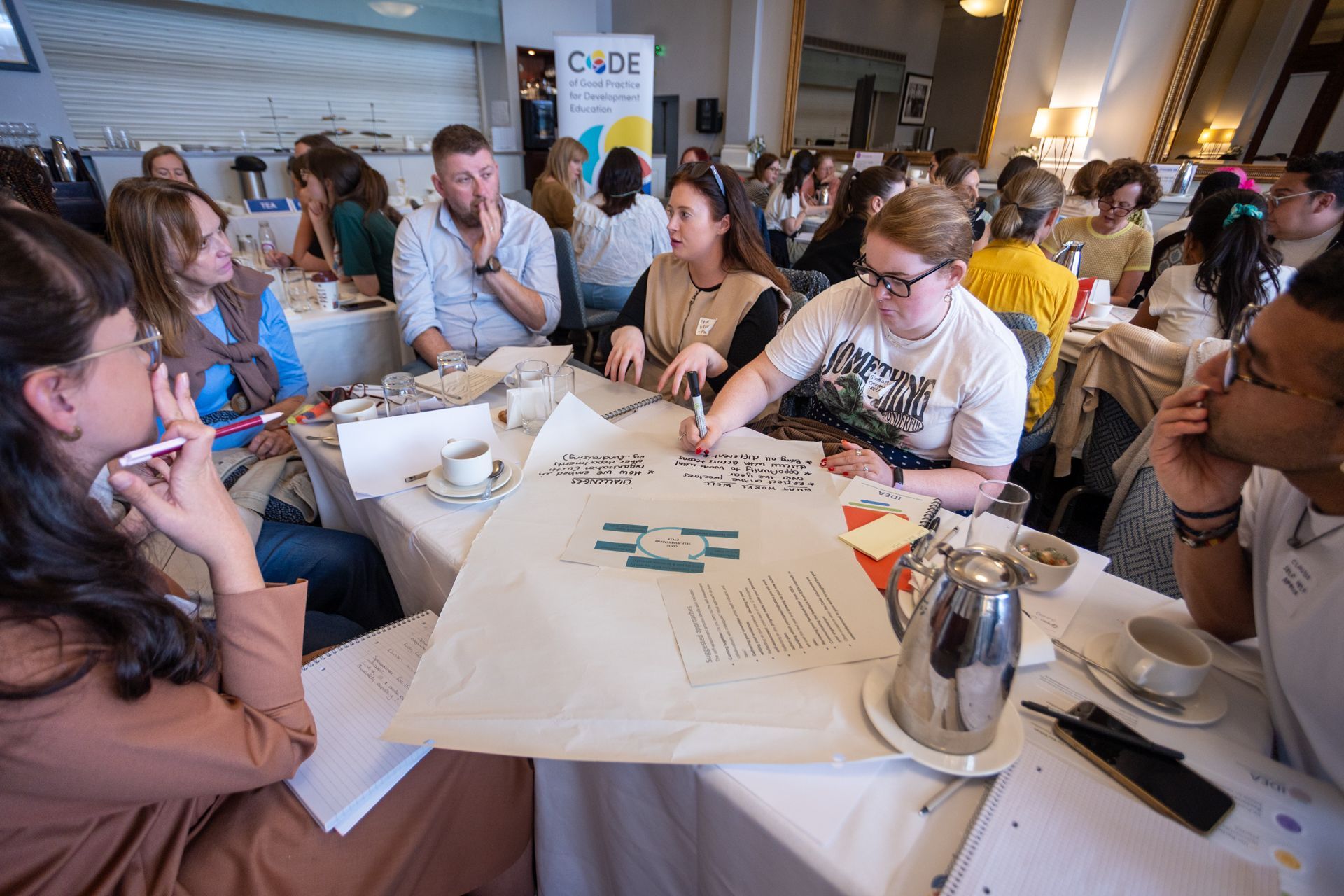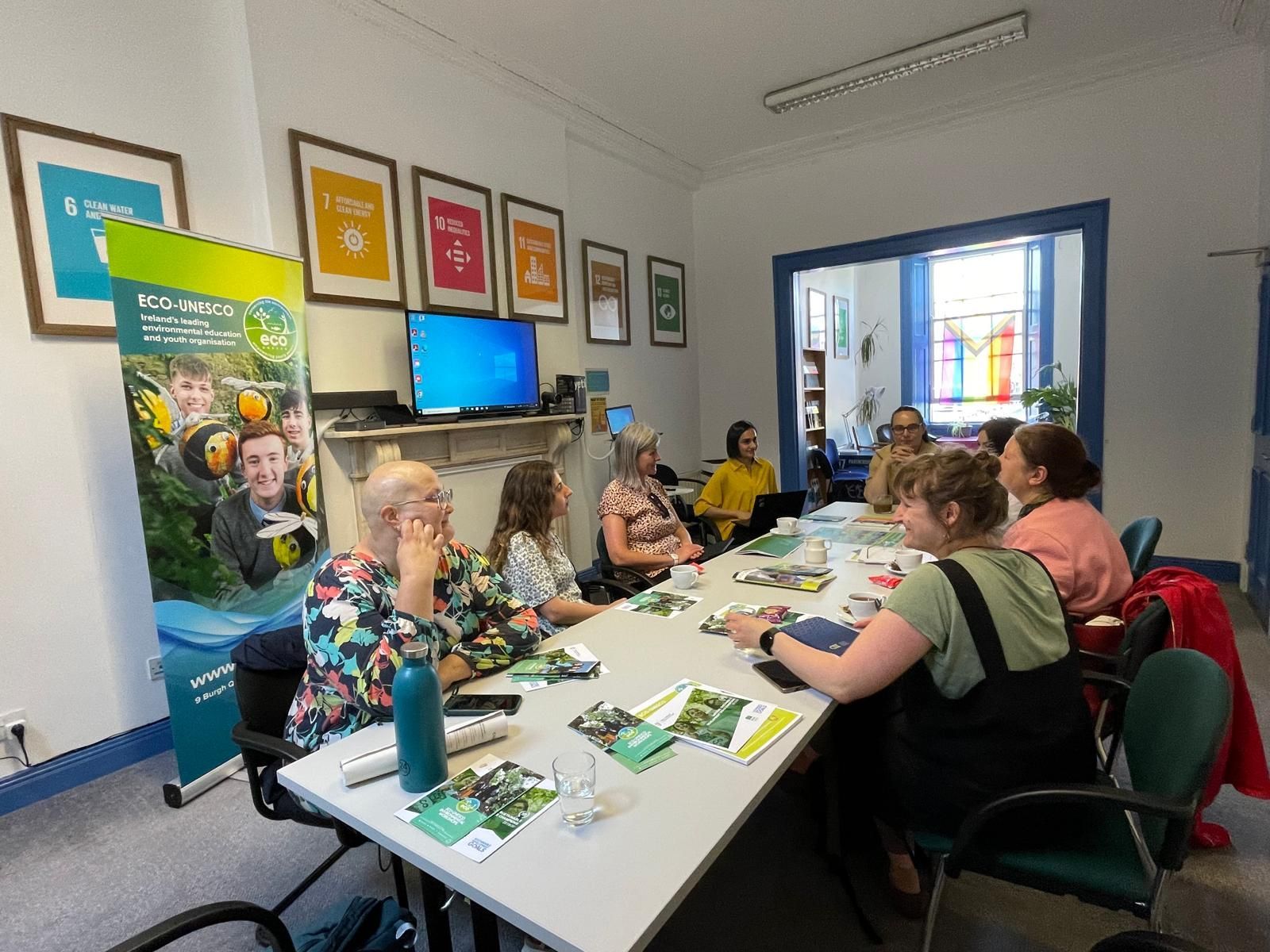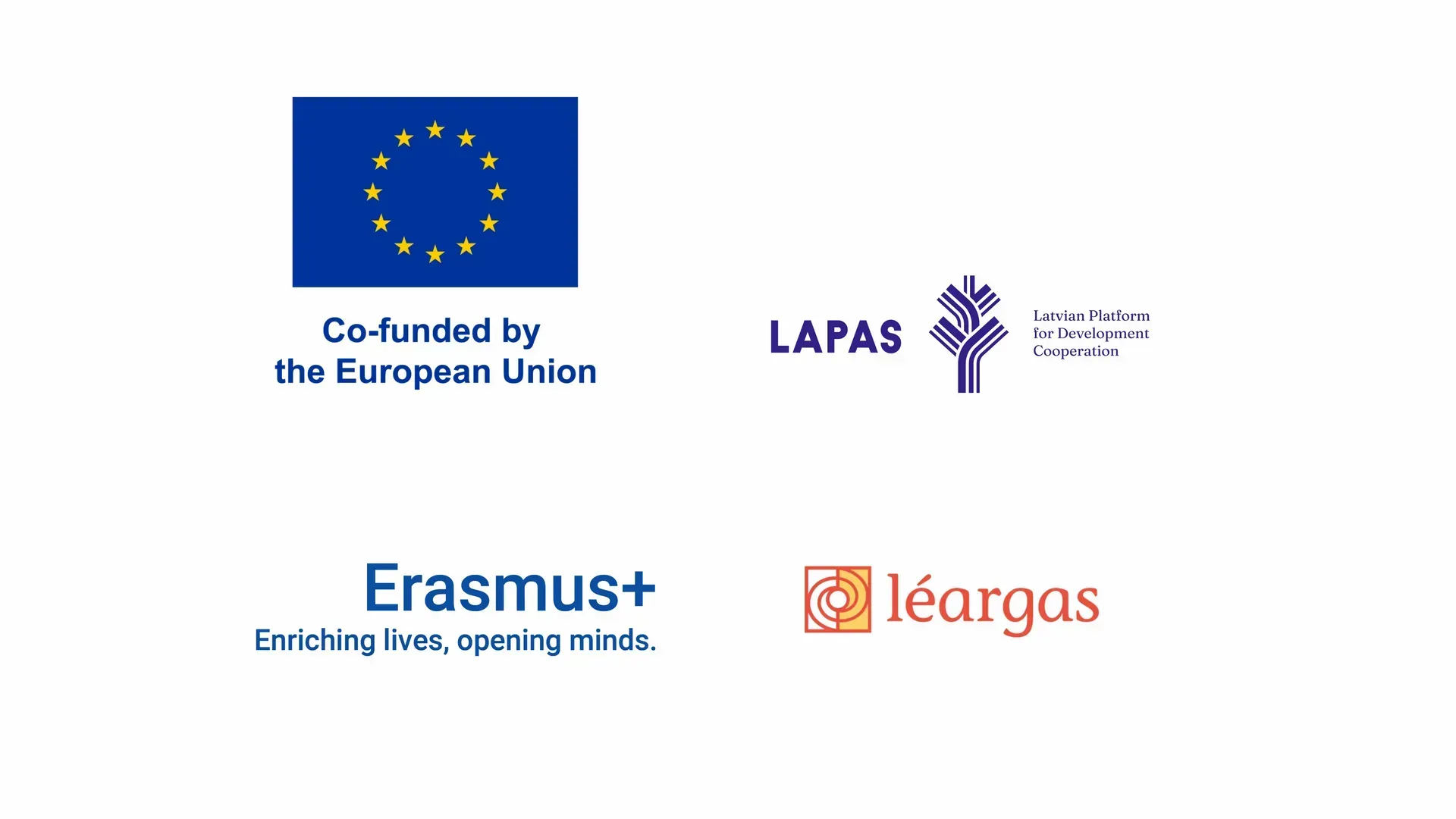International GCE Exchange: Latvian Delegation Visits Dublin as Part of IDEA’s Erasmus+ Partnership
In June, a delegation from our Erasmus+ partner organisation LAPAS (Latvian Platform for Development Cooperation) visited Dublin for a two-day learning and exchange visit hosted by IDEA. The visit was part of an ongoing collaboration with LAPAS to strengthen quality global citizenship education (GCE) in Ireland and Latvia, using the IDEA Code of Good Practice as a framework. You can find out more about the Erasmus+ project here.
Five delegates from Latvia attended the events in Dublin, including one staff member from LAPAS and four educators who are members of the new Global Education network for Latvia, which has been created as part of the project. It was a real pleasure to welcome Paula Anškena (LAPAS), Lija Indāne (Riga State classical gymnasium), Laura Bužinska (Green Liberty), Agnese Koligina (Baltic Human Rights Society), and Elīza Loja (Time for Youth) to Dublin! The programme for the LAPAS delegation was designed to support LAPAS as they develop their own national version of the Code and offered opportunities for networking, peer learning, and practical exploration of quality GCE in action.
Day 1: Connecting and Learning at the Code Network Meeting
On 18 June, the LAPAS delegation joined the IDEA Code members at our Code Network Meeting at Wynn’s Hotel in Dublin. The day-long event brought together 45 educators and practitioners from the IDEA community for discussion, reflection and peer learning on quality global education. LAPAS representatives introduced their work and progress on the Code so far. They worked with IDEA members during the morning sessions to share good practice in GCE and reflect on the ‘Code Journey’ and how IDEA members incorporate the Code into their work. We shared both successes and challenges, and we will use these to inform the development of the Latvian Code. There was lots of informal networking throughout the day, and we look forward to seeing what connections develop from this.
We used the workshop space in the afternoon for a focused Erasmus+ session on critical GCE and adapting the Code in Latvia. The session began with more detailed presentations on the Latvian representatives' organisations. IDEA members had the chance to ask questions and dig deeper into GCE practice in Latvia. Georgina Eastaugh (Concern Worldwide), who is part of the Erasmus+ task group and presented at the
kick-off meeting for the project in Riga, then led an activity on
soft versus critical GCE. We explored the concept of soft and critical GCE as described by educator and activist, Vanessa Andreotti, and worked together to tease out what is involved in a critical approach to an action, activity or lesson. Discussions during the activity helped us to get to the root of what makes quality GCE which is at the heart of the Code of Good Practice.

Day 2: Strategic Support and GCE in Action
Thursday morning began with a project management meeting at the IDEA office where we laid out the next steps for adapting the Irish Code framework for use in Latvia and for future collaboration. This was followed by a dedicated ‘Code Clinic’ session, where LAPAS representatives and IDEA staff reflected on our learnings from the Code Network Meeting and applied these learnings to the Latvian Code and new Global Education Network.
Later, the delegation visited
ECO-UNESCO,
a leading Irish youth and environmental organisation and IDEA Code member. The ECO-UNESCO team gave us a warm welcome at their Dublin offices. They shared valuable insights into their work and in particular how Irish organisations implement the Code in practice.

Looking Ahead: The Next Steps in the Project
Paula Anškena, Head of Education and Sustainability at LAPAS: “This visit helped us to better understand the development of our Code of Good Practice, but most importantly, the development of it after the project ends. Besides the Code, it was the conversations and networking that made the biggest impression on the Latvian team. It's always nice to talk to like-minded people, but especially during these hard times when the strength of democracy has been tested again and again.”
The visit marked another milestone in the collaboration between Irish and Latvian GCE actors and reinforced a shared commitment to strengthening global education practice across Europe. We feel energised by the connections made over this visit and we’re looking forward to building more on those with online meetings between the IDEA and LAPAS GCE communities in the Autumn. On a national level, IDEA’s Erasmus+ task group is developing a visual or video resource on quality, critical GCE to support members in Ireland in introducing the concepts at the centre of quality GCE and the Code to new audiences, be they colleagues, educators, organisations abroad, or members of the public.
As the project progresses, we are excited to continue learning from our peers in Latvia and expanding the reach of quality, critical GCE through the IDEA Code of Good Practice.









